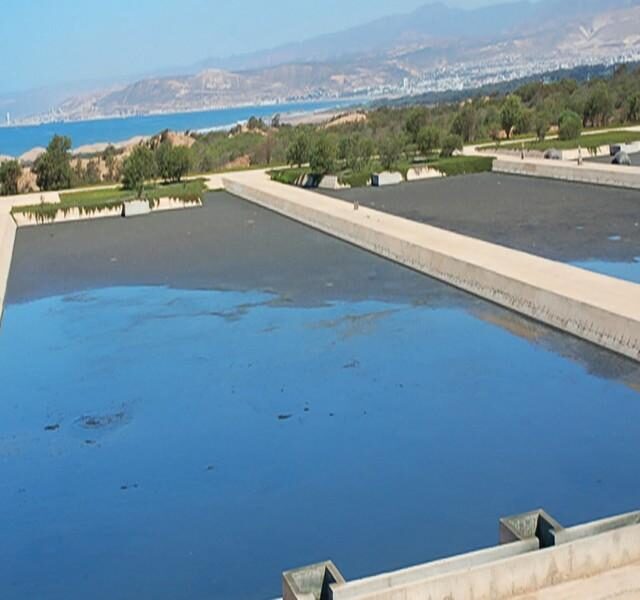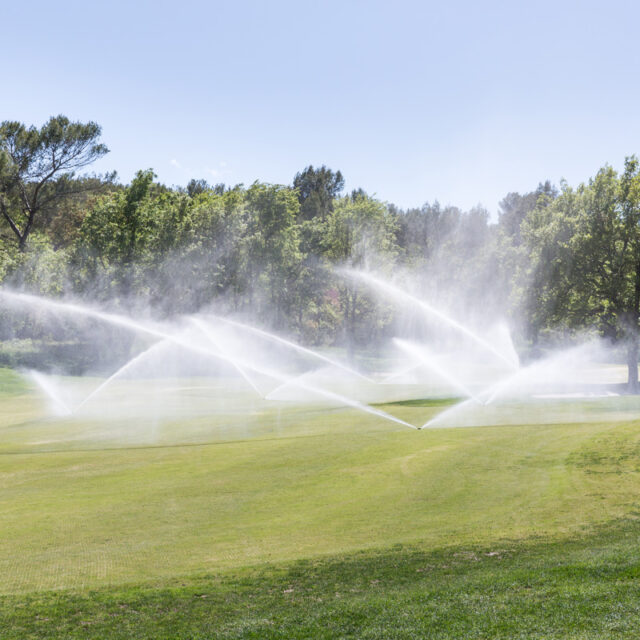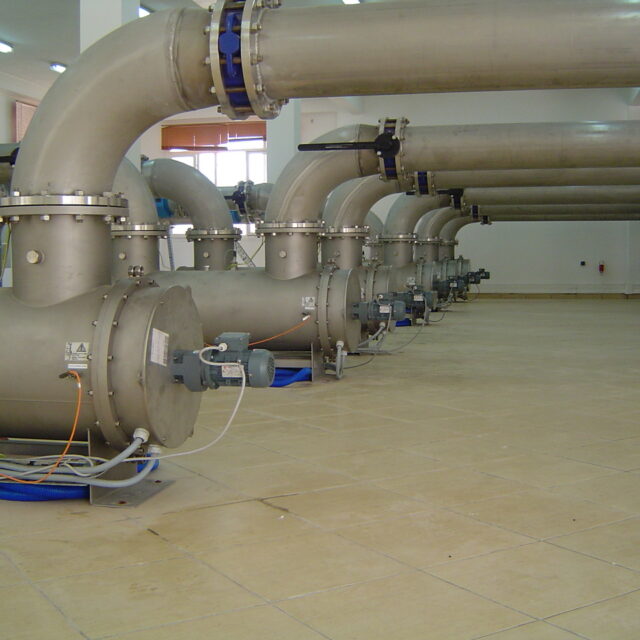Reuse of treated wastewater: the case of the M'Zar wastewater treatment plant in Morocco
Reuse of treated wastewater (also known as REUSE) is a widespread practice in areas of the world affected by water resource shortages, particularly for irrigation of crops or green spaces.
In Morocco, for example, water resources are limited and unevenly distributed. Agadir, in the south of the country, is part of a region known for its semi-arid climate and a large water deficit in both surface and groundwater. However, this Moroccan seaside resort enjoys mainly tourism, agriculture and fishing. The REUT is therefore essential to economize water resources, avoid any degradation of the environments receiving wastewater discharge, but also to ensure hygiene and public health for tourists and residents.

This observation led the Régie Autonome MultiServices d’Agadir (RAMSA) to launch a recycling wastewater from the M’zar wastewater treatment plant in order to irrigate the golf courses and green spaces of Greater Agadir. A beautiful project supported by the high instructions of the Sovereign and the Higher Council for Water and Climate.
RAMSA is committed to sustainable development and the reuse of wastewater
RAMSA manages water and sanitation services in the urban communes of Agadir, Dcheira, Inezgane, Ait Melloul and the rural commune of Aourir.
In early 2000, this public organization wished to launch a great project of sanitation, purification and valorization of the M’ZAR wastewater treatment plant of Greater Agadir. Built in 2002 on the site of the dunes of M’zar in the enclosure of the Souss Massa National Park, the STEP M’zar receives all the wastewater of the cities of Inezgane, Dcheira, Aït Melloul, Tikiouine and 70% of the water of Agadir.
This project, which takes into account the technical and environmental priorities required at the national and international level, aims to :
What are the advantages of reusing treated wastewater?
Due to the high heat and low rainfall, the water table in the Souss Massa region is experiencing a generalized drop of about 2 to 3 meters per year. This water depletion does not allow the growth of agricultural production nor the water needs of the populations.
The reuse of wastewater would represent a significant contribution to the reduction of the water deficit, to the preservation of drinking water resources, and would also generate a significant economic gain in terms of fertilizing nutrients for soils, including nitrogen, phosphorus and potash essential for the proper development of crops.
Installation of a tertiary treatment to irrigate the ocean golf course

In order to comply with health and environmental requirements, RAMSA wishes to equip the M’Zar water treatment plant with an ultraviolet water disinfection system. The objective is to obtain a bacteriological abatement equivalent to 2 log on the faecal Coliforms (that is to say < to 200 UFC/100ml), E Coli, faecal Streptococci and Cryptosporidium, as well as a total absence of Nematodes. The water thus freed from any pathogenic micro-organisms, will be used to water one of the golf courses of Agadir, the ocean golf course at first, then all the golf courses and green spaces of the city thereafter.
Ultraviolet water treatment: the expertise of a leader recognized worldwide
For more than 20 years, BIO-UV Group has been providing professionals around the world with its expertise in ultraviolet water treatment.
Ultraviolet disinfection consists of reproducing in a reactor UV-C type rays similar to those emitted by the sun, but with higher intensity. At a specific wavelength, these rays attack the cells of microorganisms and stop the duplication of their DNA, thus rendering them inactive. This process does not affect the bacteriological qualities of the water.

To meet RAMSA’s needs, the company set up 6 low pressure UV reactors equipped with 14 UV lamps each.
Our reactors, which adapt perfectly according to the installation, operation and maintenance constraints specific to each project, thus allow the reuse of treated wastewater for watering green spaces and golf courses while protecting the environment downstream from the treatment plant discharge. The water treatment is done continuously in closed reactors, where the water passes between lamps that irradiate the fluid in a few seconds and without any added chemicals.
Since August 2010, the Golf de l’Océan is thus irrigated by the purified water treated with ultraviolet light from the M’Zar WWTP and this, with an average flow of 30,000 m3/d. The BIO-UV reactors set up have already proved their worth. Indeed, the results of analyses carried out by the laboratory of analyses and biological control IBN SINA in Marrakech revealed that the presence of fecal coliforms in the water does not exceed 100 UFC/100 ml!
